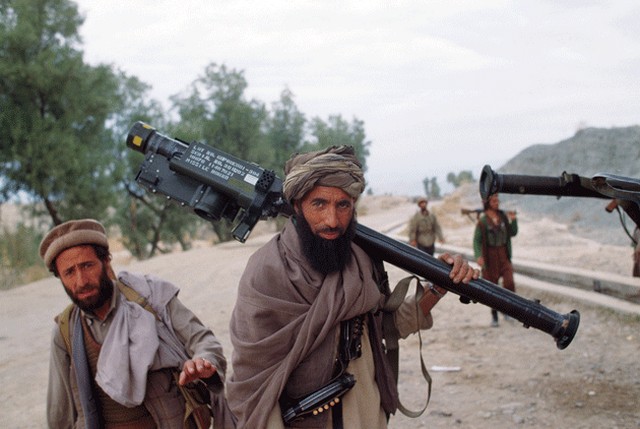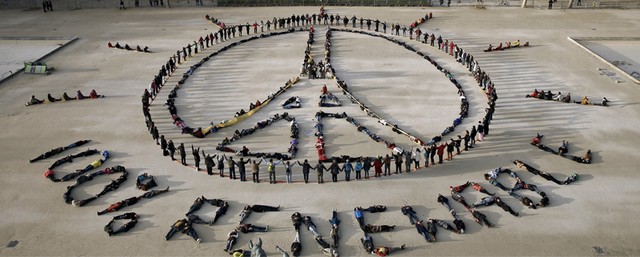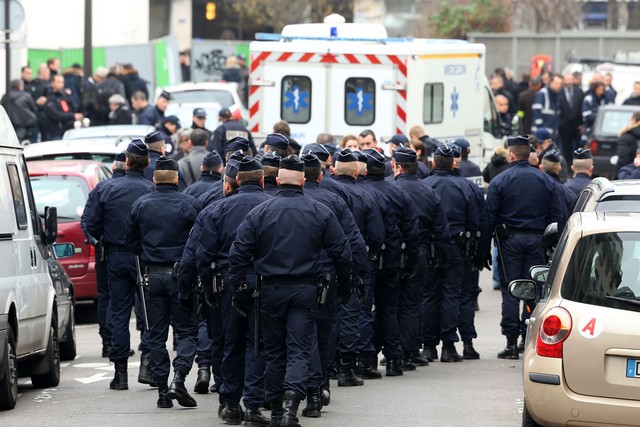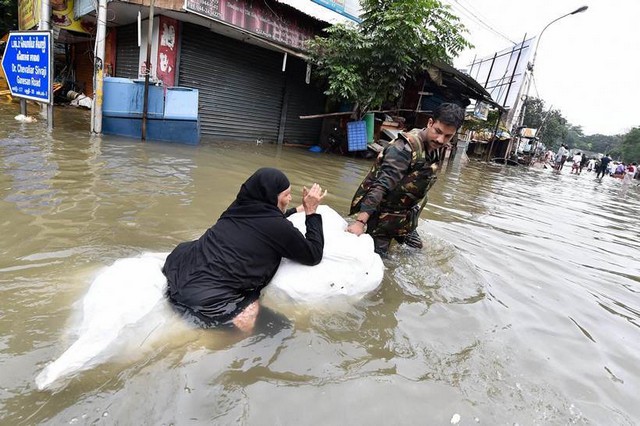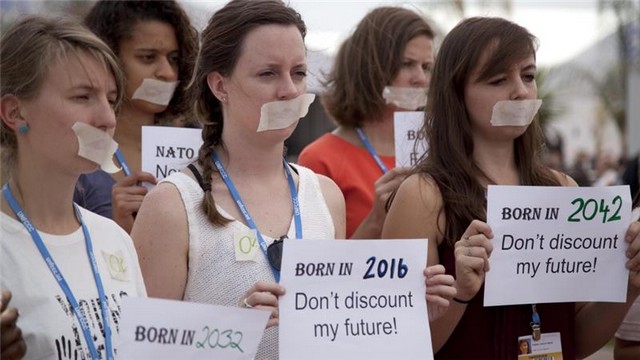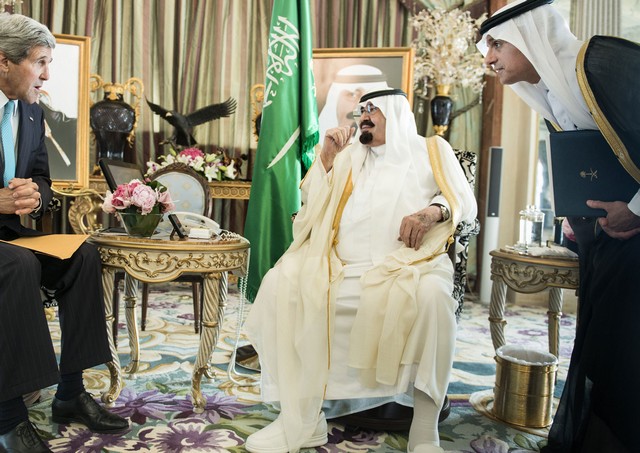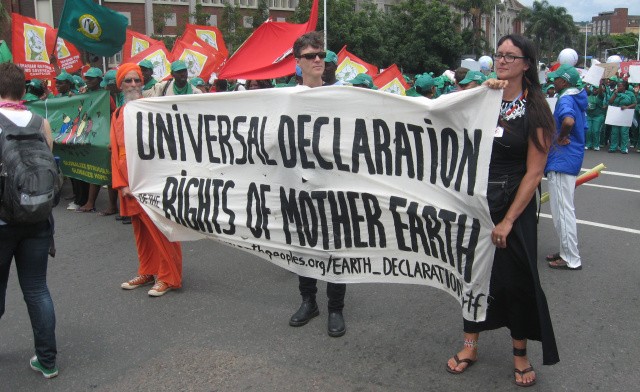By Seymour M. Hersh on US intelligence sharing in the Syrian war
Barack Obama’s repeated insistence that Bashar al-Assad must leave office – and that there are ‘moderate’ rebel groups in Syria capable of defeating him – has in recent years provoked quiet dissent, and even overt opposition, among some of the most senior officers on the Pentagon’s Joint Staff. Their criticism has focused on what they see as the administration’s fixation on Assad’s primary ally, Vladimir Putin. In their view, Obama is captive to Cold War thinking about Russia and China, and hasn’t adjusted his stance on Syria to the fact both countries share Washington’s anxiety about the spread of terrorism in and beyond Syria; like Washington, they believe that Islamic State must be stopped.
The military’s resistance dates back to the summer of 2013, when a highly classified assessment, put together by the Defense Intelligence Agency (DIA) and the Joint Chiefs of Staff, then led by General Martin Dempsey, forecast that the fall of the Assad regime would lead to chaos and, potentially, to Syria’s takeover by jihadi extremists, much as was then happening in Libya. A former senior adviser to the Joint Chiefs told me that the document was an ‘all-source’ appraisal, drawing on information from signals, satellite and human intelligence, and took a dim view of the Obama administration’s insistence on continuing to finance and arm the so-called moderate rebel groups. By then, the CIA had been conspiring for more than a year with allies in the UK, Saudi Arabia and Qatar to ship guns and goods – to be used for the overthrow of Assad – from Libya, via Turkey, into Syria. The new intelligence estimate singled out Turkey as a major impediment to Obama’s Syria policy. The document showed, the adviser said, ‘that what was started as a covert US programme to arm and support the moderate rebels fighting Assad had been co-opted by Turkey, and had morphed into an across-the-board technical, arms and logistical programme for all of the opposition, including Jabhat al-Nusra and Islamic State. The so-called moderates had evaporated and the Free Syrian Army was a rump group stationed at an airbase in Turkey.’ The assessment was bleak: there was no viable ‘moderate’ opposition to Assad, and the US was arming extremists.
Lieutenant General Michael Flynn, director of the DIA between 2012 and 2014, confirmed that his agency had sent a constant stream of classified warnings to the civilian leadership about the dire consequences of toppling Assad. The jihadists, he said, were in control of the opposition. Turkey wasn’t doing enough to stop the smuggling of foreign fighters and weapons across the border. ‘If the American public saw the intelligence we were producing daily, at the most sensitive level, they would go ballistic,’ Flynn told me. ‘We understood Isis’s long-term strategy and its campaign plans, and we also discussed the fact that Turkey was looking the other way when it came to the growth of the Islamic State inside Syria.’ The DIA’s reporting, he said, ‘got enormous pushback’ from the Obama administration. ‘I felt that they did not want to hear the truth.’
‘Our policy of arming the opposition to Assad was unsuccessful and actually having a negative impact,’ the former JCS adviser said. ‘The Joint Chiefs believed that Assad should not be replaced by fundamentalists. The administration’s policy was contradictory. They wanted Assad to go but the opposition was dominated by extremists. So who was going to replace him? To say Assad’s got to go is fine, but if you follow that through – therefore anyone is better. It’s the “anybody else is better” issue that the JCS had with Obama’s policy.’ The Joint Chiefs felt that a direct challenge to Obama’s policy would have ‘had a zero chance of success’. So in the autumn of 2013 they decided to take steps against the extremists without going through political channels, by providing US intelligence to the militaries of other nations, on the understanding that it would be passed on to the Syrian army and used against the common enemy, Jabhat al-Nusra and Islamic State.
Germany, Israel and Russia were in contact with the Syrian army, and able to exercise some influence over Assad’s decisions – it was through them that US intelligence would be shared. Each had its reasons for co-operating with Assad: Germany feared what might happen among its own population of six million Muslims if Islamic State expanded; Israel was concerned with border security; Russia had an alliance of very long standing with Syria, and was worried by the threat to its only naval base on the Mediterranean, at Tartus. ‘We weren’t intent on deviating from Obama’s stated policies,’ the adviser said. ‘But sharing our assessments via the military-to-military relationships with other countries could prove productive. It was clear that Assad needed better tactical intelligence and operational advice. The JCS concluded that if those needs were met, the overall fight against Islamist terrorism would be enhanced. Obama didn’t know, but Obama doesn’t know what the JCS does in every circumstance and that’s true of all presidents.’
Once the flow of US intelligence began, Germany, Israel and Russia started passing on information about the whereabouts and intent of radical jihadist groups to the Syrian army; in return, Syria provided information about its own capabilities and intentions. There was no direct contact between the US and the Syrian military; instead, the adviser said, ‘we provided the information – including long-range analyses on Syria’s future put together by contractors or one of our war colleges – and these countries could do with it what they chose, including sharing it with Assad. We were saying to the Germans and the others: “Here’s some information that’s pretty interesting and our interest is mutual.” End of conversation. The JCS could conclude that something beneficial would arise from it – but it was a military to military thing, and not some sort of a sinister Joint Chiefs’ plot to go around Obama and support Assad. It was a lot cleverer than that. If Assad remains in power, it will not be because we did it. It’s because he was smart enough to use the intelligence and sound tactical advice we provided to others.’
The public history of relations between the US and Syria over the past few decades has been one of enmity. Assad condemned the 9/11 attacks, but opposed the Iraq War. George W. Bush repeatedly linked Syria to the three members of his ‘axis of evil’ – Iraq, Iran and North Korea – throughout his presidency. State Department cables made public by WikiLeaks show that the Bush administration tried to destabilise Syria and that these efforts continued into the Obama years. In December 2006, William Roebuck, then in charge of the US embassy in Damascus, filed an analysis of the ‘vulnerabilities’ of the Assad government and listed methods ‘that will improve the likelihood’ of opportunities for destabilisation. He recommended that Washington work with Saudi Arabia and Egypt to increase sectarian tension and focus on publicising ‘Syrian efforts against extremist groups’ – dissident Kurds and radical Sunni factions – ‘in a way that suggests weakness, signs of instability, and uncontrolled blowback’; and that the ‘isolation of Syria’ should be encouraged through US support of the National Salvation Front, led by Abdul Halim Khaddam, a former Syrian vice president whose government-in-exile in Riyadh was sponsored by the Saudis and the Muslim Brotherhood. Another 2006 cable showed that the embassy had spent $5 million financing dissidents who ran as independent candidates for the People’s Assembly; the payments were kept up even after it became clear that Syrian intelligence knew what was going on. A 2010 cable warned that funding for a London-based television network run by a Syrian opposition group would be viewed by the Syrian government ‘as a covert and hostile gesture toward the regime’.
But there is also a parallel history of shadowy co-operation between Syria and the US during the same period. The two countries collaborated against al-Qaida, their common enemy. A longtime consultant to America’s intelligence community said that, after 9/11, ‘Bashar was, for years, extremely helpful to us while, in my view, we were churlish in return, and clumsy in our use of the gold he gave us. That quiet co-operation continued among some elements, even after the [Bush administration’s] decision to vilify him.’ In 2002 Assad authorised Syrian intelligence to turn over hundreds of internal files on the activities of the Muslim Brotherhood in Syria and Germany. Later that year, Syrian intelligence foiled an attack by al-Qaida on the headquarters of the US Navy’s Fifth Fleet in Bahrain, and Assad agreed to provide the CIA with the name of a vital al-Qaida informant. In violation of this agreement, the CIA contacted the informant directly; he rejected the approach, and broke off relations with his Syrian handlers. Assad also secretly turned over to the US relatives of Saddam Hussein who had sought refuge in Syria, and – like America’s allies in Jordan, Egypt, Thailand and elsewhere – tortured suspected terrorists for the CIA in a Damascus prison.
It was this history of co-operation that made it seem possible in 2013 that Damascus would agree to the new indirect intelligence-sharing arrangement with the US. The Joint Chiefs let it be known that in return the US would require four things: Assad must restrain Hizbullah from attacking Israel; he must renew the stalled negotiations with Israel to reach a settlement on the Golan Heights; he must agree to accept Russian and other outside military advisers; and he must commit to holding open elections after the war with a wide range of factions included. ‘We had positive feedback from the Israelis, who were willing to entertain the idea, but they needed to know what the reaction would be from Iran and Syria,’ the JCS adviser told me. ‘The Syrians told us that Assad would not make a decision unilaterally – he needed to have support from his military and Alawite allies. Assad’s worry was that Israel would say yes and then not uphold its end of the bargain.’ A senior adviser to the Kremlin on Middle East affairs told me that in late 2012, after suffering a series of battlefield setbacks and military defections, Assad had approached Israel via a contact in Moscow and offered to reopen the talks on the Golan Heights. The Israelis had rejected the offer. ‘They said, “Assad is finished,”’ the Russian official told me. ‘“He’s close to the end.”’ He said the Turks had told Moscow the same thing. By mid-2013, however, the Syrians believed the worst was behind them, and wanted assurances that the Americans and others were serious about their offers of help.
In the early stages of the talks, the adviser said, the Joint Chiefs tried to establish what Assad needed as a sign of their good intentions. The answer was sent through one of Assad’s friends: ‘Bring him the head of Prince Bandar.’ The Joint Chiefs did not oblige. Bandar bin Sultan had served Saudi Arabia for decades in intelligence and national security affairs, and spent more than twenty years as ambassador in Washington. In recent years, he has been known as an advocate for Assad’s removal from office by any means. Reportedly in poor health, he resigned last year as director of the Saudi National Security Council, but Saudi Arabia continues to be a major provider of funds to the Syrian opposition, estimated by US intelligence last year at $700 million.
In July 2013, the Joint Chiefs found a more direct way of demonstrating to Assad how serious they were about helping him. By then the CIA-sponsored secret flow of arms from Libya to the Syrian opposition, via Turkey, had been underway for more than a year (it started sometime after Gaddafi’s death on 20 October 2011).[*] The operation was largely run out of a covert CIA annex in Benghazi, with State Department acquiescence. On 11 September 2012 the US ambassador to Libya, Christopher Stevens, was killed during an anti-American demonstration that led to the burning down of the US consulate in Benghazi; reporters for the Washington Post found copies of the ambassador’s schedule in the building’s ruins. It showed that on 10 September Stevens had met with the chief of the CIA’s annex operation. The next day, shortly before he died, he met a representative from Al-Marfa Shipping and Maritime Services, a Tripoli-based company which, the JCS adviser said, was known by the Joint Staff to be handling the weapons shipments.
By the late summer of 2013, the DIA’s assessment had been circulated widely, but although many in the American intelligence community were aware that the Syrian opposition was dominated by extremists the CIA-sponsored weapons kept coming, presenting a continuing problem for Assad’s army. Gaddafi’s stockpile had created an international arms bazaar, though prices were high. ‘There was no way to stop the arms shipments that had been authorised by the president,’ the JCS adviser said. ‘The solution involved an appeal to the pocketbook. The CIA was approached by a representative from the Joint Chiefs with a suggestion: there were far less costly weapons available in Turkish arsenals that could reach the Syrian rebels within days, and without a boat ride.’ But it wasn’t only the CIA that benefited. ‘We worked with Turks we trusted who were not loyal to Erdoğan,’ the adviser said, ‘and got them to ship the jihadists in Syria all the obsolete weapons in the arsenal, including M1 carbines that hadn’t been seen since the Korean War and lots of Soviet arms. It was a message Assad could understand: “We have the power to diminish a presidential policy in its tracks.”’
The flow of US intelligence to the Syrian army, and the downgrading of the quality of the arms being supplied to the rebels, came at a critical juncture. The Syrian army had suffered heavy losses in the spring of 2013 in fighting against Jabhat al-Nusra and other extremist groups as it failed to hold the provincial capital of Raqqa. Sporadic Syrian army and air-force raids continued in the area for months, with little success, until it was decided to withdraw from Raqqa and other hard to defend, lightly populated areas in the north and west and focus instead on consolidating the government’s hold on Damascus and the heavily populated areas linking the capital to Latakia in the north-east. But as the army gained in strength with the Joint Chiefs’ support, Saudi Arabia, Qatar and Turkey escalated their financing and arming of Jabhat al-Nusra and Islamic State, which by the end of 2013 had made enormous gains on both sides of the Syria/Iraq border. The remaining non-fundamentalist rebels found themselves fighting – and losing – pitched battles against the extremists. In January 2014, IS took complete control of Raqqa and the tribal areas around it from al-Nusra and established the city as its base. Assad still controlled 80 per cent of the Syrian population, but he had lost a vast amount of territory.
CIA efforts to train the moderate rebel forces were also failing badly. ‘The CIA’s training camp was in Jordan and was controlled by a Syrian tribal group,’ the JCS adviser said. There was a suspicion that some of those who signed up for training were actually Syrian army regulars minus their uniforms. This had happened before, at the height of the Iraqi war, when hundreds of Shia militia members showed up at American training camps for new uniforms, weapons and a few days of training, and then disappeared into the desert. A separate training programme, set up by the Pentagon in Turkey, fared no better. The Pentagon acknowledged in September that only ‘four or five’ of its recruits were still battling Islamic State; a few days later 70 of them defected to Jabhat al-Nusra immediately after crossing the border into Syria.
In January 2014, despairing at the lack of progress, John Brennan, the director of the CIA, summoned American and Sunni Arab intelligence chiefs from throughout the Middle East to a secret meeting in Washington, with the aim of persuading Saudi Arabia to stop supporting extremist fighters in Syria. ‘The Saudis told us they were happy to listen,’ the JCS adviser said, ‘so everyone sat around in Washington to hear Brennan tell them that they had to get on board with the so-called moderates. His message was that if everyone in the region stopped supporting al-Nusra and Isis their ammunition and weapons would dry up, and the moderates would win out.’ Brennan’s message was ignored by the Saudis, the adviser said, who ‘went back home and increased their efforts with the extremists and asked us for more technical support. And we say OK, and so it turns out that we end up reinforcing the extremists.’
But the Saudis were far from the only problem: American intelligence had accumulated intercept and human intelligence demonstrating that the Erdoğan government had been supporting Jabhat al-Nusra for years, and was now doing the same for Islamic State. ‘We can handle the Saudis,’ the adviser said. ‘We can handle the Muslim Brotherhood. You can argue that the whole balance in the Middle East is based on a form of mutually assured destruction between Israel and the rest of the Middle East, and Turkey can disrupt the balance – which is Erdoğan’s dream. We told him we wanted him to shut down the pipeline of foreign jihadists flowing into Turkey. But he is dreaming big – of restoring the Ottoman Empire – and he did not realise the extent to which he could be successful in this.’
One of the constants in US affairs since the fall of the Soviet Union has been a military-to-military relationship with Russia. After 1991 the US spent billions of dollars to help Russia secure its nuclear weapons complex, including a highly secret joint operation to remove weapons-grade uranium from unsecured storage depots in Kazakhstan. Joint programmes to monitor the security of weapons-grade materials continued for the next two decades. During the American war on Afghanistan, Russia provided overflight rights for US cargo carriers and tankers, as well as access for the flow of weapons, ammunition, food and water the US war machine needed daily. Russia’s military provided intelligence on Osama bin Laden’s whereabouts and helped the US negotiate rights to use an airbase in Kyrgyzstan. The Joint Chiefs have been in communication with their Russian counterparts throughout the Syrian war, and the ties between the two militaries start at the top. In August, a few weeks before his retirement as chairman of the
Joint Chiefs, Dempsey made a farewell visit to the headquarters of the Irish Defence Forces in Dublin and told his audience there that he had made a point while in office to keep in touch with the chief of the Russian General Staff, General Valery Gerasimov. ‘I’ve actually suggested to him that we not end our careers as we began them,’ Dempsey said – one a tank commander in West Germany, the other in the east.
When it comes to tackling Islamic State, Russia and the US have much to offer each other. Many in the IS leadership and rank and file fought for more than a decade against Russia in the two Chechen wars that began in 1994, and the Putin government is heavily invested in combating Islamist terrorism. ‘Russia knows the Isis leadership,’ the JCS adviser said, ‘and has insights into its operational techniques, and has much intelligence to share.’ In return, he said, ‘we’ve got excellent trainers with years of experience in training foreign fighters – experience that Russia does not have.’ The adviser would not discuss what American intelligence is also believed to have: an ability to obtain targeting data, often by paying huge sums of cash, from sources within rebel militias.
A former White House adviser on Russian affairs told me that before 9/11 Putin ‘used to say to us: “We have the same nightmares about different places.” He was referring to his problems with the caliphate in Chechnya and our early issues with al-Qaida. These days, after the Metrojet bombing over Sinai and the massacres in Paris and elsewhere, it’s hard to avoid the conclusion that we actually have the same nightmares about the same places.’
Yet the Obama administration continues to condemn Russia for its support of Assad. A retired senior diplomat who served at the US embassy in Moscow expressed sympathy for Obama’s dilemma as the leader of the Western coalition opposed to Russia’s aggression against Ukraine: ‘Ukraine is a serious issue and Obama has been handling it firmly with sanctions. But our policy vis-à-vis Russia is too often unfocused. But it’s not about us in Syria. It’s about making sure Bashar does not lose. The reality is that Putin does not want to see the chaos in Syria spread to Jordan or Lebanon, as it has to Iraq, and he does not want to see Syria end up in the hands of Isis. The most counterproductive thing Obama has done, and it has hurt our efforts to end the fighting a lot, was to say: “Assad must go as a premise for negotiation.”’ He also echoed a view held by some in the Pentagon when he alluded to a collateral factor behind Russia’s decision to launch airstrikes in support of the Syrian army on 30 September: Putin’s desire to prevent Assad from suffering the same fate as Gaddafi. He had been told that Putin had watched a video of Gaddafi’s savage death three times, a video that shows him being sodomised with a bayonet. The JCS adviser also told me of a US intelligence assessment which concluded that Putin had been appalled by Gaddafi’s fate: ‘Putin blamed himself for letting Gaddafi go, for not playing a strong role behind the scenes’ at the UN when the Western coalition was lobbying to be allowed to undertake the airstrikes that destroyed the regime. ‘Putin believed that unless he got engaged Bashar would suffer the same fate – mutilated – and he’d see the destruction of his allies in Syria.’
In a speech on 22 November, Obama declared that the ‘principal targets’ of the Russian airstrikes ‘have been the moderate opposition’. It’s a line that the administration – along with most of the mainstream American media – has rarely strayed from. The Russians insist that they are targeting all rebel groups that threaten Syria’s stability – including Islamic State. The Kremlin adviser on the Middle East explained in an interview that the first round of Russian airstrikes was aimed at bolstering security around a Russian airbase in Latakia, an Alawite stronghold. The strategic goal, he said, has been to establish a jihadist-free corridor from Damascus to Latakia and the Russian naval base at Tartus and then to shift the focus of bombing gradually to the south and east, with a greater concentration of bombing missions over IS-held territory. Russian strikes on IS targets in and near Raqqa were reported as early as the beginning of October; in November there were further strikes on IS positions near the historic city of Palmyra and in Idlib province, a bitterly contested stronghold on the Turkish border.
Russian incursions into Turkish airspace began soon after Putin authorised the bombings, and the Russian air force deployed electronic jamming systems that interfered with Turkish radar. The message being sent to the Turkish air force, the JCS adviser said, was: ‘We’re going to fly our fighter planes where we want and when we want and jam your radar. Do not fuck with us. Putin was letting the Turks know what they were up against.’ Russia’s aggression led to Turkish complaints and Russian denials, along with more aggressive border patrolling by the Turkish air force. There were no significant incidents until 24 November, when two Turkish F-16 fighters, apparently acting under more aggressive rules of engagement, shot down a Russian Su-24M jet that had crossed into Turkish airspace for no more than 17 seconds. In the days after the fighter was shot down, Obama expressed support for Erdoğan, and after they met in private on 1 December he told a press conference that his administration remained ‘very much committed to Turkey’s security and its sovereignty’. He said that as long as Russia remained allied with Assad, ‘a lot of Russian resources are still going to be targeted at opposition groups … that we support … So I don’t think we should be under any illusions that somehow Russia starts hitting only Isil targets. That’s not happening now. It was never happening. It’s not going to be happening in the next several weeks.’
The Kremlin adviser on the Middle East, like the Joint Chiefs and the DIA, dismisses the ‘moderates’ who have Obama’s support, seeing them as extremist Islamist groups that fight alongside Jabhat al-Nusra and IS (‘There’s no need to play with words and split terrorists into moderate and not moderate,’ Putin said in a speech on 22 October). The American generals see them as exhausted militias that have been forced to make an accommodation with Jabhat al-Nusra or IS in order to survive. At the end of 2014, Jürgen Todenhöfer, a German journalist who was allowed to spend ten days touring IS-held territory in Iraq and Syria, told CNN that the IS leadership ‘are all laughing about the Free Syrian Army. They don’t take them for serious. They say: “The best arms sellers we have are the FSA. If they get a good weapon, they sell it to us.” They didn’t take them for serious. They take for serious Assad. They take for serious, of course, the bombs. But they fear nothing, and FSA doesn’t play a role.’
Putin’s bombing campaign provoked a series of anti-Russia articles in the American press. On 25 October, the New York Times reported, citing Obama administration officials, that Russian submarines and spy ships were ‘aggressively’ operating near the undersea cables that carry much of the world’s internet traffic – although, as the article went on to acknowledge, there was ‘no evidence yet’ of any Russian attempt actually to interfere with that traffic. Ten days earlier the Times published a summary of Russian intrusions into its former Soviet satellite republics, and described the Russian bombing in Syria as being ‘in some respects a return to the ambitious military moves of the Soviet past’. The report did not note that the Assad administration had invited Russia to intervene, nor did it mention the US bombing raids inside Syria that had been underway since the previous September, without Syria’s approval. An October op-ed in the same paper by Michael McFaul, Obama’s ambassador to Russia between 2012 and 2014, declared that the Russian air campaign was attacking ‘everyone except the Islamic State’. The anti-Russia stories did not abate after the Metrojet disaster, for which Islamic State claimed credit. Few in the US government and media questioned why IS would target a Russian airliner, along with its 224 passengers and crew, if Moscow’s air force was attacking only the Syrian ‘moderates’.
Economic sanctions, meanwhile, are still in effect against Russia for what a large number of Americans consider Putin’s war crimes in Ukraine, as are US Treasury Department sanctions against Syria and against those Americans who do business there. The New York Times, in a report on sanctions in late November, revived an old and groundless assertion, saying that the Treasury’s actions ‘emphasise an argument that the administration has increasingly been making about Mr Assad as it seeks to press Russia to abandon its backing for him: that although he professes to be at war with Islamist terrorists, he has a symbiotic relationship with the Islamic State that has allowed it to thrive while he has clung to power.’
The four core elements of Obama’s Syria policy remain intact today: an insistence that Assad must go; that no anti-IS coalition with Russia is possible; that Turkey is a steadfast ally in the war against terrorism; and that there really are significant moderate opposition forces for the US to support. The Paris attacks on 13 November that killed 130 people did not change the White House’s public stance, although many European leaders, including François Hollande, advocated greater co-operation with Russia and agreed to co-ordinate more closely with its air force; there was also talk of the need to be more flexible about the timing of Assad’s exit from power. On 24 November, Hollande flew to Washington to discuss how France and the US could collaborate more closely in the fight against Islamic State. At a joint press conference at the White House, Obama said he and Hollande had agreed that ‘Russia’s strikes against the moderate opposition only bolster the Assad regime, whose brutality has helped to fuel the rise’ of IS. Hollande didn’t go that far but he said that the diplomatic process in Vienna would ‘lead to Bashar al-Assad’s departure … a government of unity is required.’ The press conference failed to deal with the far more urgent impasse between the two men on the matter of Erdoğan. Obama defended Turkey’s right to defend its borders; Hollande said it was ‘a matter of urgency’ for Turkey to take action against terrorists. The JCS adviser told me that one of Hollande’s main goals in flying to Washington had been to try to persuade Obama to join the EU in a mutual declaration of war against Islamic State. Obama said no. The Europeans had pointedly not gone to Nato, to which Turkey belongs, for such a declaration. ‘Turkey is the problem,’ the JCS adviser said.
Assad, naturally, doesn’t accept that a group of foreign leaders should be deciding on his future. Imad Moustapha, now Syria’s ambassador to China, was dean of the IT faculty at the University of Damascus, and a close aide of Assad’s, when he was appointed in 2004 as the Syrian ambassador to the US, a post he held for seven years. Moustapha is known still to be close to Assad, and can be trusted to reflect what he thinks. He told me that for Assad to surrender power would mean capitulating to ‘armed terrorist groups’ and that ministers in a national unity government – such as was being proposed by the Europeans – would be seen to be beholden to the foreign powers that appointed them. These powers could remind the new president ‘that they could easily replace him as they did before to the predecessor … Assad owes it to his people: he could not leave because the historic enemies of Syria are demanding his departure.’
Moustapha also brought up China, an ally of Assad that has allegedly committed more than $30 billion to postwar reconstruction in Syria. China, too, is worried about Islamic State. ‘China regards the Syrian crisis from three perspectives,’ he said: international law and legitimacy; global strategic positioning; and the activities of jihadist Uighurs, from Xinjiang province in China’s far west. Xinjiang borders eight nations – Mongolia, Russia, Kazakhstan, Kyrgyzstan, Tajikistan, Afghanistan, Pakistan and India – and, in China’s view, serves as a funnel for terrorism around the world and within China. Many Uighur fighters now in Syria are known to be members of the East Turkestan Islamic Movement – an often violent separatist organisation that seeks to establish an Islamist Uighur state in Xinjiang. ‘The fact that they have been aided by Turkish intelligence to move from China into Syria through Turkey has caused a tremendous amount of tension between the Chinese and Turkish intelligence,’ Moustapha said. ‘China is concerned that the Turkish role of supporting the Uighur fighters in Syria may be extended in the future to support Turkey’s agenda in Xinjiang. We are already providing the Chinese intelligence service with information regarding these terrorists and the routes they crossed from on travelling into Syria.’
Moustapha’s concerns were echoed by a Washington foreign affairs analyst who has closely followed the passage of jihadists through Turkey and into Syria. The analyst, whose views are routinely sought by senior government officials, told me that ‘Erdoğan has been bringing Uighurs into Syria by special transport while his government has been agitating in favour of their struggle in China. Uighur and Burmese Muslim terrorists who escape into Thailand somehow get Turkish passports and are then flown to Turkey for transit into Syria.’ He added that there was also what amounted to another ‘rat line’ that was funnelling Uighurs – estimates range from a few hundred to many thousands over the years – from China into Kazakhstan for eventual relay to Turkey, and then to IS territory in Syria. ‘US intelligence,’ he said, ‘is not getting good information about these activities because those insiders who are unhappy with the policy are not talking to them.’ He also said it was ‘not clear’ that the officials responsible for
Syrian policy in the State Department and White House ‘get it’. IHS-Jane’s Defence Weekly estimated in October that as many as five thousand Uighur would-be fighters have arrived in Turkey since 2013, with perhaps two thousand moving on to Syria. Moustapha said he has information that ‘up to 860 Uighur fighters are currently in Syria.’
China’s growing concern about the Uighur problem and its link to Syria and Islamic State have preoccupied Christina Lin, a scholar who dealt with Chinese issues a decade ago while serving in the Pentagon under Donald Rumsfeld. ‘I grew up in Taiwan and came to the Pentagon as a critic of China,’ Lin told me. ‘I used to demonise the Chinese as ideologues, and they are not perfect. But over the years as I see them opening up and evolving, I have begun to change my perspective. I see China as a potential partner for various global challenges especially in the Middle East. There are many places – Syria for one – where the United States and China must co-operate in regional security and counterterrorism.’ A few weeks earlier, she said, China and India, Cold War enemies that ‘hated each other more than China and the United States hated each other, conducted a series of joint counterterrorism exercises. And today China and Russia both want to co-operate on terrorism issues with the United States.’ As China sees it, Lin suggests, Uighur militants who have made their way to Syria are being trained by Islamic State in survival techniques intended to aid them on covert return trips to the Chinese mainland, for future terrorist attacks there. ‘If Assad fails,’ Lin wrote in a paper published in September, ‘jihadi fighters from Russia’s Chechnya, China’s Xinjiang and India’s Kashmir will then turn their eyes towards the home front to continue jihad, supported by a new and well-sourced Syrian operating base in the heart of the Middle East.’
General Dempsey and his colleagues on the Joint Chiefs of Staff kept their dissent out of bureaucratic channels, and survived in office. General Michael Flynn did not. ‘Flynn incurred the wrath of the White House by insisting on telling the truth about Syria,’ said Patrick Lang, a retired army colonel who served for nearly a decade as the chief Middle East civilian intelligence officer for the DIA. ‘He thought truth was the best thing and they shoved him out. He wouldn’t shut up.’ Flynn told me his problems went beyond Syria. ‘I was shaking things up at the DIA – and not just moving deckchairs on the Titanic. It was radical reform. I felt that the civilian leadership did not want to hear the truth. I suffered for it, but I’m OK with that.’ In a recent interview in Der Spiegel, Flynn was blunt about Russia’s entry into the Syrian war: ‘We have to work constructively with Russia. Whether we like it or not, Russia made a decision to be there and to act militarily. They are there, and this has dramatically changed the dynamic. So you can’t say Russia is bad; they have to go home. It’s not going to happen. Get real.’
Few in the US Congress share this view. One exception is Tulsi Gabbard, a Democrat from Hawaii and member of the House Armed Services Committee who, as a major in the Army National Guard, served two tours in the Middle East. In an interview on CNN in October she said: ‘The US and the CIA should stop this illegal and counterproductive war to overthrow the Syrian government of Assad and should stay focused on fighting against … the Islamic extremist groups.’
‘Does it not concern you,’ the interviewer asked, ‘that Assad’s regime has been brutal, killing at least 200,000 and maybe 300,000 of his own people?’
‘The things that are being said about Assad right now,’ Gabbard responded, ‘are the same that were said about Gaddafi, they are the same things that were said about Saddam Hussein by those who were advocating for the US to … overthrow those regimes … If it happens here in Syria … we will end up in a situation with far greater suffering, with far greater persecution of religious minorities and Christians in Syria, and our enemy will be far stronger.’
‘So what you are saying,’ the interviewer asked, ‘is that the Russian military involvement in the air and on-the-ground Iranian involvement – they are actually doing the US a favour?’
‘They are working toward defeating our common enemy,’ Gabbard replied.
Gabbard later told me that many of her colleagues in Congress, Democrats and Republicans, have thanked her privately for speaking out. ‘There are a lot of people in the general public, and even in the Congress, who need to have things clearly explained to them,’ Gabbard said. ‘But it’s hard when there’s so much deception about what is going on. The truth is not out.’ It’s unusual for a politician to challenge her party’s foreign policy directly and on the record. For someone on the inside, with access to the most secret intelligence, speaking openly and critically can be a career-ender. Informed dissent can be transmitted by means of a trust relationship between a reporter and those on the inside, but it almost invariably includes no signature. The dissent exists, however. The longtime consultant to the Joint Special Operations Command could not hide his contempt when I asked him for his view of the US’s Syria policy. ‘The solution in Syria is right before our nose,’ he said. ‘Our primary threat is Isis and a
ll of us – the United States, Russia and China – need to work together. Bashar will remain in office and, after the country is stabilised there will be an election. There is no other option.’
The military’s indirect pathway to Assad disappeared with Dempsey’s retirement in September. His replacement as chairman of the Joint Chiefs, General Joseph Dunford, testified before the Senate Armed Services Committee in July, two months before assuming office. ‘If you want to talk about a nation that could pose an existential threat to the United States, I’d have to point to Russia,’ Dunford said. ‘If you look at their behaviour, it’s nothing short of alarming.’ In October, as chairman, Dunford dismissed the Russian bombing efforts in Syria, telling the same committee that Russia ‘is not fighting’ IS. He added that America must ‘work with Turkish partners to secure the northern border of Syria’ and ‘do all we can to enable vetted Syrian opposition forces’ – i.e. the ‘moderates’ – to fight the extremists.
Obama now has a more compliant Pentagon. There will be no more indirect challenges from the military leadership to his policy of disdain for Assad and support for Erdoğan. Dempsey and his associates remain mystified by Obama’s continued public defence of Erdoğan, given the American intelligence community’s strong case against him – and the evidence that Obama, in private, accepts that case. ‘We know what you’re doing with the radicals in Syria,’ the president told Erdoğan’s intelligence chief at a tense meeting at the White House (as I reported in the LRB of 17 April 2014). The Joint Chiefs and the DIA were constantly telling Washington’s leadership of the jihadist threat in Syria, and of Turkey’s support for it. The message was never listened to. Why not?
Seymour Hersh wrote about this in the LRB of 17 April 2014.


